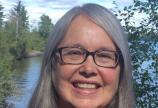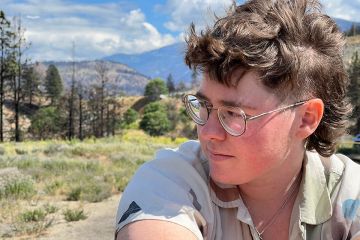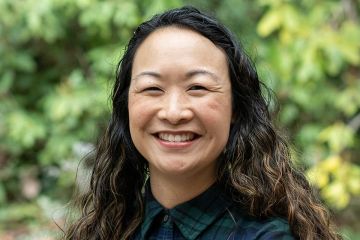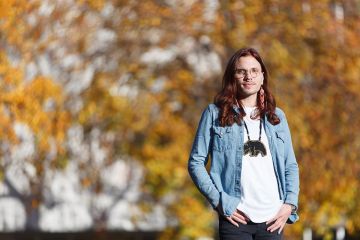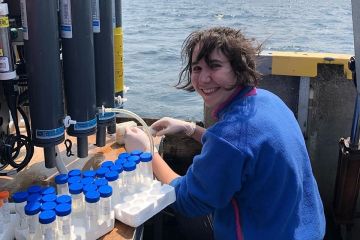Healing through language
- Stephanie Harrington
Researching the mental and physical health benefits of learning one’s language as an adult
Margaret Erasmus has had a lifelong thirst for language and culture.
Erasmus, who belongs to the Yellowknives Dene First Nation, lives in Ndilǫ, on the edge of Yellowknife in the Northwest Territories. As a young girl, Erasmus assisted her mother, who taught classes in Tłı̨chǫ, the first language of some 2,500 people.
“Ever since I was 12 years old I wanted to speak my language more fluently,” Erasmus says. “It’s important for me to be recognized as Dene and what I do as Dene.”
Erasmus, who holds a Bachelor of Arts and a Bachelor of Education, graduated with a Master in Indigenous Language Revitalization (MILR). The program, the only one of its kind in Canada, is a collaboration between UVic’s faculties of humanities and education. Erasmus’s thesis, “Healing Our Languages, Healing Ourselves: Now is the Time,” focused on the powerful mental and physical health benefits of learning one’s language as an adult.
For her research, Erasmus conducted in-depth interviews with eight fellow students enrolled in the master’s program. Research participants had their own stories to tell, but Erasmus said the commonality was clear: each person had an enriched sense of identity, purpose and wellbeing after learning their language. Some even reported physical benefits such as weight loss.
“As their language learning ramped up, so did their health,” Erasmus reported of one participant. “The further they went into their language learning journey, the more their health improved and continued to improve. I was able to perceive improved health as a consequence of fluency.”
Erasmus used Indigenous methodology for her research, following Dene protocols, values and laws. She says immersive, land-based learning in one’s own community would help threatened languages, such as her own, thrive.
“One of my dreams is we can have our education in our languages. I think that’s where we need to go,” she says. “We need to go onto the land, we are part of the land, that’s where we do most of our teaching and learning that’s authentic.”
Three of Erasmus’s children flew to Victoria for her thesis defense in April, including a daughter completing a PhD in Alberta, a son studying in Vancouver and another son living in the Northwest Territories. Erasmus will return to her community after convocation and share her research with others, especially teachers working in language revitalization.
As always, being true to her Dene language and culture will be the centre of Erasmus’s mission.
“We’ve had so much taken away from us and appropriated. We need to be recognized for our scholarly past,” Erasmus says. “Language programming needs to be developed by us from the ground up and delivered by us.”
Photos
In this story
Keywords: convocation, Indigenous languages, languages and linguistics, health
People: Margaret Erasmus
Publication: The Ring







